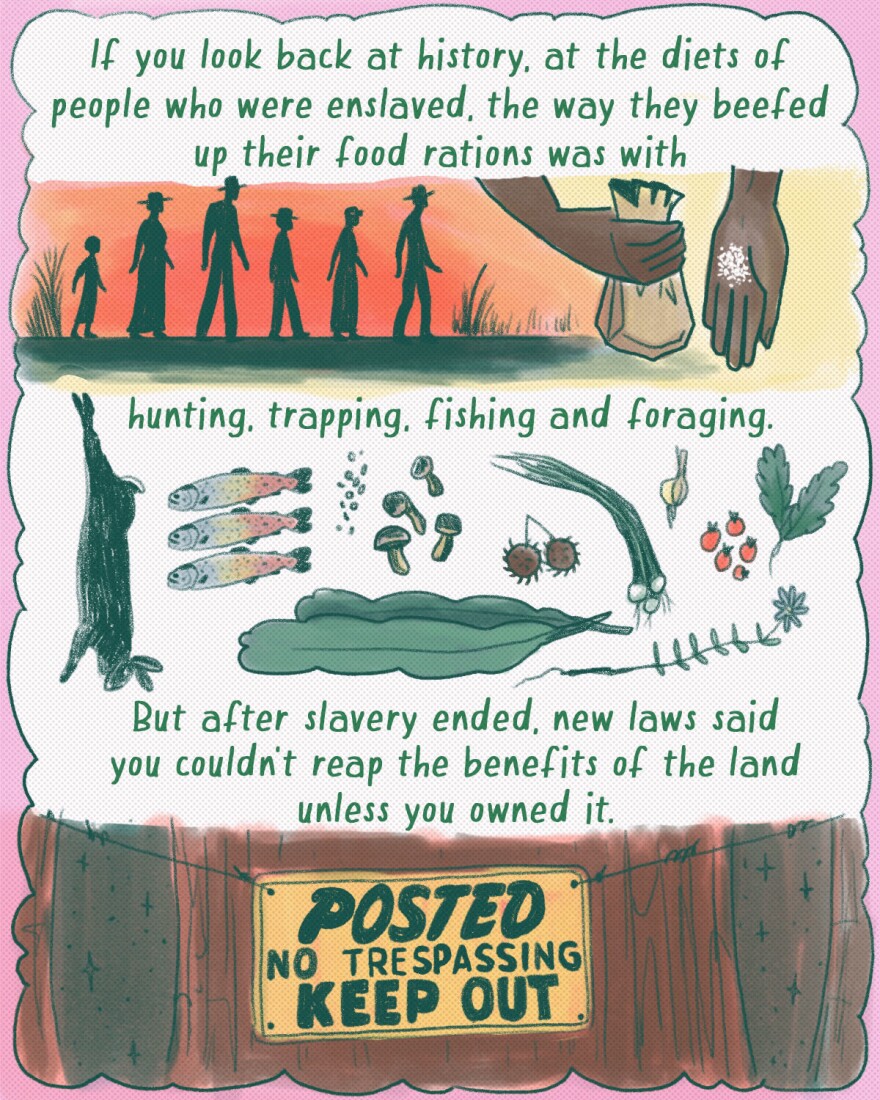This comic, illustrated by LA Johnson, is inspired by an interview from TED Radio Hour's episode The Food Connection.
For forager Alexis Nikole Nelson, who has a very popular TikTok (@alexisnikole) with over 4 million followers, there's something soul-nourishing about connecting with your food. Her videos are all about her foraging adventures — finding cool plants, teaching people all about them and then using them to cook amazingly delicious dishes. And after dealing with an eating disorder and cultural stigma, she found that foraging was the way to fall back in love with food.









* Please note: If done incorrectly, foraging can pose serious risks. Those who choose to pursue foraging should conduct thorough research from multiple credible sources, consult experts, and exercise caution.
This segment of TED Radio Hour was produced by Katie Monteleone and edited by Sanaz Meshkinpour. Fiona Geiran contributed to the research and digital production of this piece. You can follow us on Twitter @TEDRadioHour and email us at [email protected].
Copyright 2023 NPR. To see more, visit https://www.npr.org. 9(MDM3NjYwMjA5MDE1MjA1MzQ1NDk1N2ZmZQ004))




